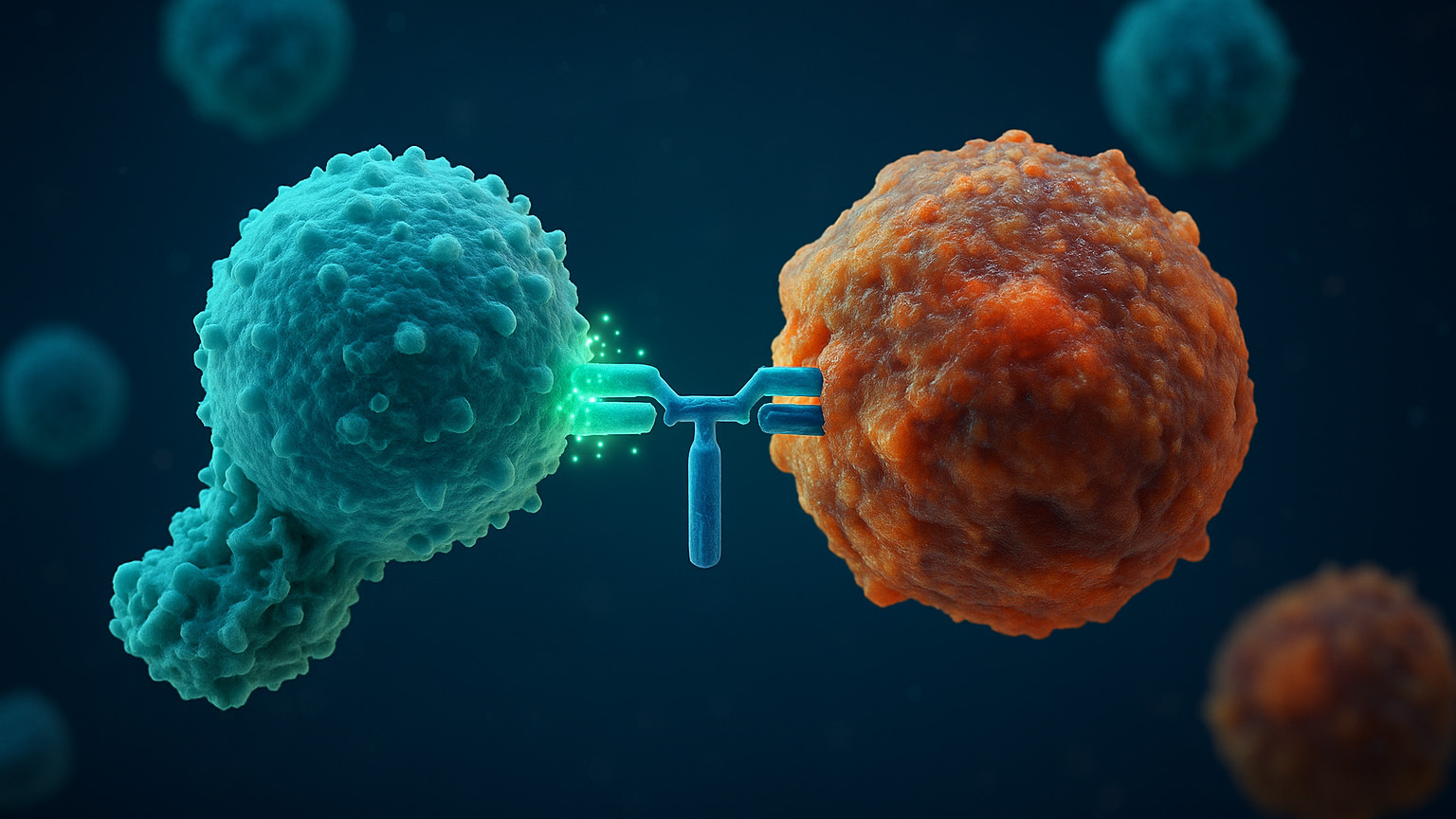Our practice is proud to provide bispecific antibody (BiTE) therapy—an advanced treatment that helps your immune system fight cancer more effectively.
What Are Bispecific Antibodies?
Bispecific antibodies are proteins engineered to connect two different types of cells: your immune cells and cancer cells. By linking them together, these antibodies help your immune system find and destroy cancer cells more efficiently.
How Do They Work?
Think of bispecific antibodies as a bridge. One side attaches to your immune cells, and the other side attaches to cancer cells. This connection helps your immune system recognize and attack the cancer.
How We Use Bispecific Antibodies
At our practice, we use bispecific antibody therapy to treat certain types of blood cancers and solid tumors. This therapy is part of our commitment to providing the latest and most effective cancer treatments. Our team works closely with each patient to determine if this therapy is the right choice for their specific type of cancer.
Talk to Your Doctor
If you’re interested in learning more about bispecific antibody therapy and whether it’s suitable for you, please speak with your doctor. They can provide detailed information and help decide the best treatment plan for your needs.
Treatment Considerations
When using bispecific antibodies, it’s important to consider several factors to optimize treatment outcomes and minimize risks. These factors include patient eligibility, potential side effects, and the need for monitoring during therapy.
- Patient Eligibility – Bispecific antibody therapies are typically prescribed for certain types of blood cancers such as leukemia, lymphoma and multiple myeloma. They are also used for certain solid tumor cancers such as lung cancer. Our oncologists can determine if you are eligible for treatment with BiTE therapy based on your specific type of cancer and your previous treatments.
- Safety Considerations – Bispecific antibody therapies can cause potentially serious or life-threatening side effects, including cytokine release syndrome (CRS) and immune effector cell-associated neurotoxicity syndrome (ICANS). Symptoms of CRS may include fever, low blood pressure, difficulty breathing, and chills. Neurological symptoms may include confusion, difficulty speaking, seizures, and altered consciousness. These side effects typically occur during initial treatment and require immediate medical attention. Patients receiving bispecific antibody therapy are closely monitored, particularly during step-up dosing, and specific protocols are in place to manage these complications.
Disclaimers
CONTENT CURRENCY: This information was last reviewed and updated in June 2025. Medical knowledge and treatment guidelines evolve rapidly. Please consult with your healthcare provider for the most current information regarding bispecific antibody therapies.
IMPORTANT NOTICE: The information provided on this page is for educational purposes only and does not constitute medical advice. Bispecific antibody therapies should only be administered under the supervision of qualified healthcare professionals. Treatment decisions should be based on individual patient needs and made in consultation with your healthcare provider. American Oncology Partners does not guarantee the efficacy or safety of any treatment mentioned on this page for any specific patient.
